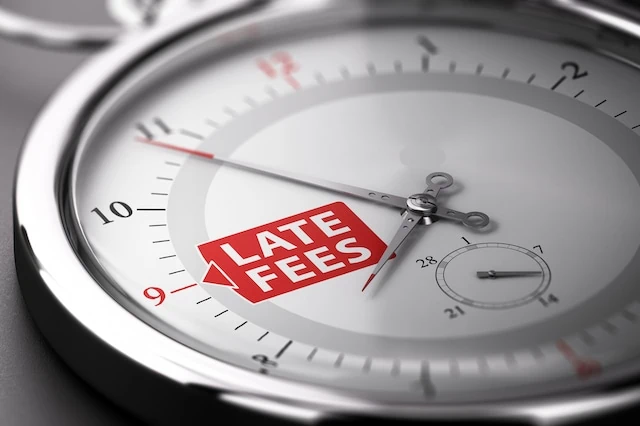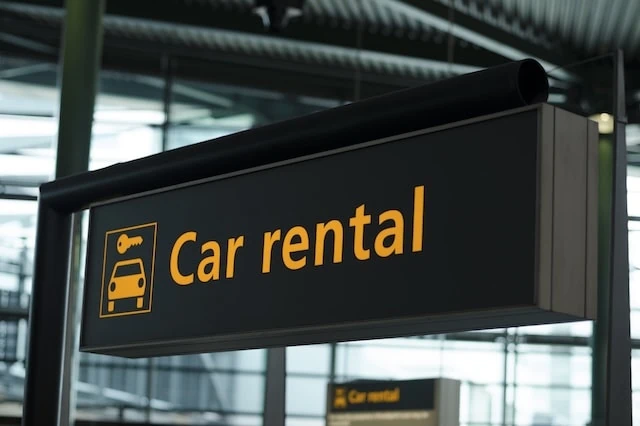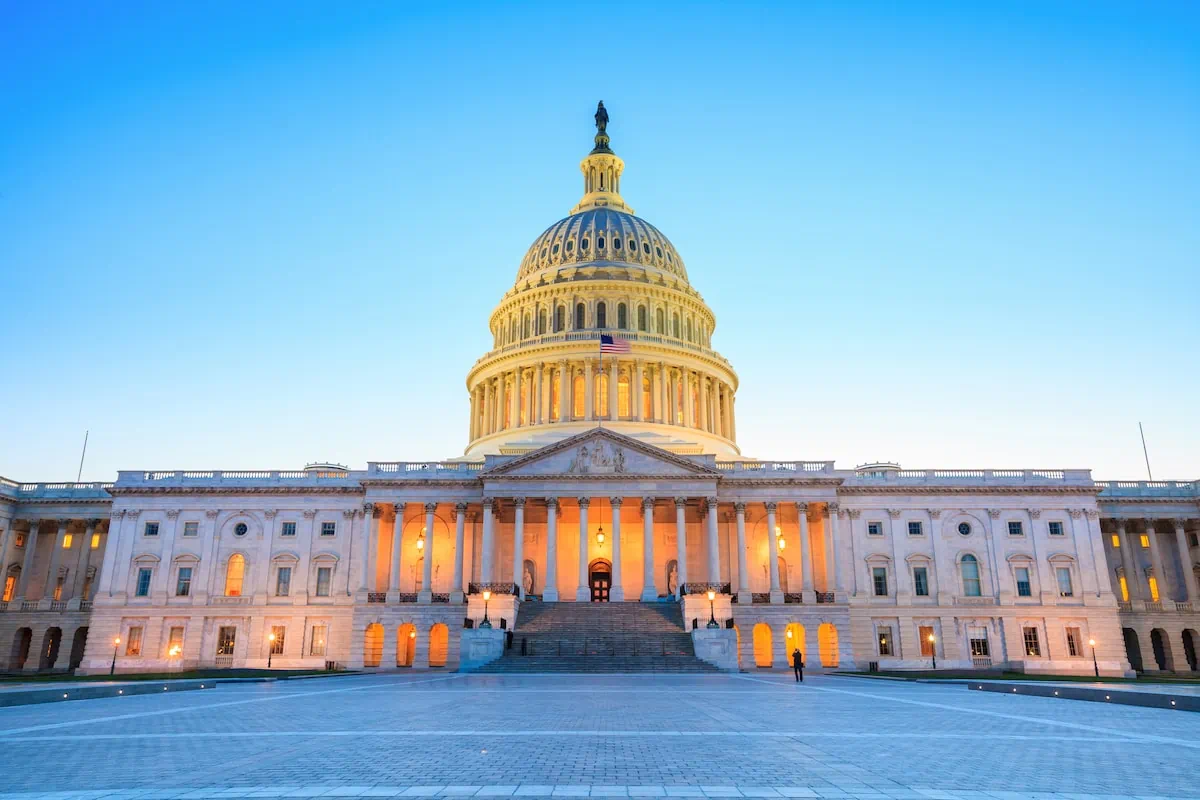We all want to save time and money, and consumer fees steal both from us.
Let’s be clear: Some fees make sense. Clearly listed and explained fees that pay for defined benefits are just the cost of doing business. But many junk fees add little to no value—in many cases, they’re just ways to pad a company’s bottom line.
Compounding the problem? Hidden and misleading fees are often not disclosed until you’ve taken several steps toward making a purchase. So all that time you spent carefully comparison shopping to get the best deal has been wasted, as you’re stuck staring at a total that was much higher than you anticipated.
These fees have become so commonplace that they’re core to many businesses in several industries, becoming an annoyance to (and a drain on) consumers. But good news: You can often mitigate the impact of these fees.
Read on as I talk about some of the most hated consumer fees, and discuss which ones you can eliminate, which ones you might be able to lower, and how to deal with the ones you’re stuck paying. And after that, I’ll also talk about ways in which the government is (finally) cracking down on some of these junk fees.
Featured Financial Products
Table of Contents
1. “Convenience” Fees

Convenience fees are a type of charge for making a purchase through a specific channel. For instance, you might be charged a convenience fee for buying your tickets online instead of in person. Or you might be charged a convenience fee for using a credit card instead of check or cash.
Frustratingly, though, these fees are often charged when only one method of payment is available—and thus there’s no way to avoid the fee.
What can you do? Look at the vendor’s terms for the convenience fee. While the fee might simply be inevitable in some cases, you might be able to avoid the fee by changing your method of payment (credit card, ACH, etc.) or place of payment (in person, on the phone, online).
2. Resort Fees

A hotel, at its most core definition, is simply a business that provides lodging in exchange for money. They’re typically a little more than that, offering amenities such as a breakfast buffet or a business center.
But a resort is more than a hotel—it typically offers both fuller and more varied amenities and even experiences, from full-service restaurants and spas to water parks and casinos.
Once upon a time, you would simply pay for whatever amenities you wanted to use, and resorts would use that money to maintain those amenities. But increasingly, resorts have … ahem, resorted … to charging all-inclusive resort fees—regardless of whether you actually plan on using any of those amenities. This allows them to still quote a lower booking price up front, then tack on the resort fee during checkout to juice the final charge right as you’re about to book a room.
What can you do? While these fees are often non-negotiable, it’s worth at least asking the staff if they can waive the fee if you don’t actually plan on using any of the amenities. (You’re more likely to have luck if you’re a rewards member or experienced problems during your stay.) When you’re searching for a place to stay, use booking sites that provide all-in prices so you can more accurately compare costs. And if you’re the kind of person who doesn’t use many amenities in the first place, try booking with a more “rooms-oriented” hotel that focuses less on perks and more on a comfortable stay.
3. Overdraft Fees + Nonsufficient Funds Fees (NSFs)

Two of the most common banking fees are overdraft fees and nonsufficient funds (NSF) fees. Both fees involve trying to spend more money than you have in your account, but they’re not quite the same.
A bank charges an overdraft fee when it clears a transaction that’s overdrawn the account and temporarily covers your shortfall. But if a bank declines to cash a check or approve a payment that would overdraw the account, it will charge an NSF fee.
What can you do? The glib answer: Don’t overdraw your account. But if we’re being practical, and you want to prevent an accidental overdraft or NSF fee, consider switching where you do your banking. Many banks and credit unions don’t charge these fees as long as you aren’t overdrawn by a substantial amount. For instance, Axos Rewards Checking charges no overdraft fees whatsoever.
Related: 8 Best Personal Capital Alternatives
4. Short-Term Rental Cleaning Fees

Ask anyone you know who frequently uses Airbnb, Vrbo, or another short-term rental app, and they’ll tell you one of their biggest sources of angst are skyrocketing cleaning fees.
Early on in these apps’ history, these were hidden fees, so they were nasty surprises that popped up as you were about to book. After considerable backlash, some started to make the fees more visible. For instance, Airbnb has added the total price display feature, so users now can change their settings to see an accommodation’s “total price” (it still doesn’t include taxes) upfront.
That said, the fees themselves remain, and some of them are downright exorbitant. In many cases, they amount to a quarter of a stay’s total cost. Worse? Rentals often come with instructions on cleaning the guest is required to do—leaving many guests confused about just why they’re paying high cleaning fees.
What can you do? There’s no negotiating cleaning fees or requesting they be waived. Your best bet is to choose rentals that have reasonable to no cleaning fees and modest expectations for how much the guest should clean. Or you could always stay at a hotel.
Related: 6 Best Stock Recommendation Services [Stock Tips + Picks]
5. ATM Withdrawal Fee

You know the drill: If you go to an ATM within your bank’s network, you can use it for free. But if you go to another bank’s ATM or a third-party machine, get ready to pay a few bucks in ATM withdrawal fees.
ATM fees are naturally frustrating because it’s an extra charge to access your own money. And while the fees might only be a couple bucks in many locations, a few are eye-poppingly high. I recently used an ATM while traveling to Costa Rica, and I was charged a $7.80 fee!
What can you do? You have two realistic options for getting around these fees. You can either bank with an institution that has an exceedingly high number of in-network bank and/or third-party ATMs. Or you can bank with a financial institution that reimburses out-of-network ATM fees. (That foreign ATM fee I mentioned? That’s getting reimbursed.)
Related: 8 Best Stock Portfolio Tracking Apps [Stock Portfolio Trackers]
Featured Financial Products
6. Excess Airline Fees

I just mentioned that I used an ATM during a recent trip out of the country. Well, for my return flight, I paid the following taxes and fees:
— U.S. Transportation Tax
— Costa Rica Sales Tax
— Costa Rica Transportation Sales Tax
— U.S. Immigration User Fee
— U.S. Customs User Fee
— U.S. APHIS User Fee
— International Boarding Tax
— Costa Rica Common Area User Charge
— Costa Rica Baggage Inspection Fee
— Costa Rica Security Fee
— September 11th Security Fee
— U.S. Passenger Facility Charge
— Baggage fee (checked bag; no carry-on allowed)
Not all airline fees are junk fees, but some can be. And they’ve become a lot more commonplace—many airlines added hidden charges as a way to make up for losses suffered during the pandemic. Even before the pandemic, airlines were becoming a little too fee-happy, charging for elements of air travel (checked bags, seat selection) that once were just part of the normal ticket price. Indeed, despite booking under one name, I wasn’t assigned a seat next to my travel companion for the return flight.
What can you do? While there’s no way of getting out of many of the government fees listed above, you can reduce airline-related fees. One way is to not pay for what you won’t use; for instance, if you can get through a trip with just carry-on luggage, you won’t need to worry about checked bag fees. You should use booking sites to compare flight prices inclusive of fees, so you’re comparing apples to apples. Also, if you want to get creative, some travel cards reward cardholders with significant airline fee credits each year.
Related: 31 Millennial Spending Habits & Income Statistics to Know
7. Credit Card Surcharges

A credit card surcharge is a specific fee that helps offset the cost of completing a credit card transaction. You see, when you use a credit card, the merchant must pay the credit card network (think Visa or Mastercard), a processor (think Square), and potentially other companies that enabled the transaction. These fees usually add up to between 1% and 4% of the purchase cost; nominally, the costs are high enough that some businesses will require a minimum purchase amount to use a card.
A few states have limitations on these fees—some limit how much a business can levy in credit card surcharges (and a couple prohibit them!), and some require the business to disclose that they have a surcharge. But in some cases, there are no limits and no disclosure rules, making these fees difficult to sniff out.
What can you do? Again, depending on what state you live in, you might have no way of discovering whether those credit card costs are being baked in or not. Where these fees are disclosed, you can simply avoid shopping anywhere that has a credit card surcharge—and instead spend money with merchants that charge less when you pay in cash.
Related: 60 Personal Finance Statistics You Might Not Know (But Should!)
8. Annual Credit Card Fees

Rewards credit cards offer some excellent perks, but these and other high-end plastic often comes with an annual fee. This fee is one of the most important things to weigh when choosing a credit card—after all, you don’t want to end up spending more on fees than you reap in rewards.
What can you do? While annoying, credit card companies are typically upfront about annual fees, so if you don’t want to pay an annual fee, simply choose from the credit card world’s wide variety of free options. And though it won’t work often, it’s worth at least calling to see if you can get the fee waived; the worst they can say is “no.”
But sometimes, it pays to pay the fee. Just make sure you take a close look at all of the rewards, and how likely you’ll be to use them all, to get an idea of whether you’re going to come out ahead.
Related: 7 Best Round-Up Apps for Saving + Investing Money Instantly
9. College Application Fees

Everyone knows that going to college in the U.S. is expensive. But not everyone knows that merely applying to colleges isn’t exactly cheap, either.
The average college application fee for a four-year, not-for-profit institution is around $50. That’s not exactly great if your child’s applying to just one college—but given that most students apply to many schools, these fees can really add up. And if you have several children … OK, you get the idea.
What can you do? Good news here. College application fees can frequently be waived if you meet certain financial eligibility requirements and/or can show that the fee would be a significant financial burden. So consider contacting college admission offices of the universities your child wants to apply to and ask about whether (and how) you can get an application fee waived.
Related: Roth IRA vs. 529 Plan: Which Is Better For College Savings?
10. Rental Application Fees

Landlords often require prospective tenants to fill out an application and authorize background checks and other reports. These reports cost money, so it’s common for landlords to pass those expenses onto applicants via a rental application fee.
These fees typically range from $30 to $75 apiece—and that will quickly pile up if you’re applying to several apartments at once.
What can you do? It is extremely unlikely you’ll ever get a landlord to waive these fees. So your best bet, when you can, is to avoid a shotgun approach when apartment-hunting. Find out as much as you can about each of your prospective residences, then apply to them one by one—start by applying to your most preferred building, then wait to hear back before applying to the next building.
(And while you’re at it, inquire about all other fees, including administrative fees, pet fees, amenity fees, parking fees, and so on.)
You also might be able to skip multiple application fees if you use a shareable rental application through a service like Avail. Avail’s Renter Profile feature lets you share a digital rental application with landlords that includes commonly asked information, background checks, and more. This strategy may enable you avoid paying multiple fees to several landlords.
Related: 8 Best Rent Collection Apps & Software for Landlords
11. Late Fees

A broad range of businesses—banks, credit card issuers, landlords, and even some merchants—will tack on a late fee when a payment is past due. Some will allow a grace period, but many will levy the fee immediately.
We all might hate paying late fees, but there’s at least a justification. Just like you and I have bills to pay, companies have bills to pay, too—late fees compel customers to pay on time so the business in turn can settle their debts on time.
What can you do? If you’re charged a late fee, call or email the business; it’s common for companies to remove a late fee. If you already have a history of on-time payments and/or this is your first offense, that usually helps your case.
Of course, the best option is to pay your bills on time. Putting your bills on autopay is a good way to stay current, but if that’s not an option, set a calendar reminder for a few days before your payment is due.
Related: 7 Best Wealth + Net Worth Tracker Apps [View All Your Assets]
12. Rideshare Surge Pricing

You’ve just left a football game or a concert, and now you need a ride back to your hotel. Well … you’re not alone. And that sudden surge in demand? Rideshare apps take these, as well as supply of drivers, into account—and when there’s a lot more demand than supply, they’ll add surge pricing.
In short: If you want a ride at that time, you’ll have to pay more (sometimes much more) than you usually would.
What can you do? Your options for avoiding surge pricing vary. You could leave the event early before the rush starts, but that’s not for everyone. Alternatively, if you’re not in a hurry, you can wait out the surge until prices drop back to normal. Another option is to check a different rideshare app that might have lower (or no) surge pricing—if Uber is showing 2x fares, check Lyft to see if their rates are more affordable.
Related: 10 Best Fidelity Funds to Own
Featured Financial Products
13. Realtor Fees

Real estate agents are paid a commission when you buy or sell a house. Typically, the home seller pays the full commission to the listing agent and the buyer’s agent (if one is used), and that commission is baked into the sale price. Of course, these professionals are only paid when a deal occurs—if you look at several houses but don’t buy one, you’re not out any money.
What can you do? Sometimes, the commission is negotiable—you’ll have to talk to the agent to see if you can get the fee reduced. You could also try not to use a real estate agent at all, but you might not know everything you need to know about closing documents, purchase agreements, and state laws. You might save money, you’ll have to invest much more of your time. And if you’re a for-sale-by-owner (FBSO) seller, real estate agents representing buyers might not want to work with you.
Related: 8 Best Online Rent Payment Systems [Rent Collection Services]
14. Home Closing Costs

One of the biggest mistakes that novice homebuyers and sellers make is underestimating closing costs. These fees are separate from the real estate agency fees and cover loan processing, title company fees, recording of the real estate deed, insurance, and more.
What can you do? Can you avoid paying closing costs? Maybe! There isn’t a set rule as to whether the buyer or seller pays the closing costs (though traditionally, the buyer pays more). You or your real estate agent may be able to negotiate having the other party pay more. Plus, some of those fees can sometimes be negotiated down.
Related: 7 Best Banks for Real Estate Investors + Landlords
15. Resale Fees

Whether you’re a professional reseller or just trying to clear out your closet, sellers have to pay resale fees to online marketplaces. Sellers can be resentful of these fees—after all, just how much should a middleman be entitled to?
What can you do? Unfortunately, these fees are the same for everyone—you can’t strike your own deal with a platform. But you can compare the fee structures of any platforms you’re considering. Poshmark, eBay, and Mercari all have different fee rates, for instance. And occasionally, you can save if you’re a volume reseller—eBay, for instance, And eBay does let you save on volume, reducing fees if you sell more than 250 items per month.
You could skip fees altogether by selling items directly to buyers, whether that’s having a garage sale or alerting people to what you’re selling via social media posts. But your reach will be far more limited this way.
Related: 50+ Best Money-Making Apps That Pay You Real Money
16. Early Check-In / Late Check-out Fees

Maybe your flight arrived way before your hotel check-in time and you don’t want to lug around your heavy luggage. Or maybe you just want to sleep in later than check-out time. Well, the hotel might be able to do something about that … if you pay early check-in and late check-out fees.
What can you do? You can get around these fees in many cases. Even if a hotel doesn’t allow you to check in early for free, if you just want to unload your bags, many hotels are willing to store your luggage for a few hours before you check in or after you check out—for free. (In fact, once, when I asked a hotel to hold my luggage for a few hours before I checked in, they offered to let me check in early at no additional cost.)
Another way to avoid these fees can be to join a hotel chain’s loyalty program. Certain hotel chains provide fee-free early check-in and late check-outs if you’re part of their program.
Related: 12 Best Investment Opportunities for Accredited Investors
17. Hotel Parking Fees

Being a hotel guest doesn’t ensure your parking is free, especially in busy cities. Parking fees can be hefty—even if they’re self-parking solutions. Valets are typically even more expensive, plus a tip is expected.
What can you do? No one is going to negotiate parking fees with you, so your best bet is to seek out alternative options. You can opt to park in a cheaper parking garage that isn’t affiliated with the hotel. You can check for street parking. You can use rideshare services. Or you can use public transit.
Related: 18 Passive Income Apps that Give & Make You Money
18. Rental Car Fees

The price you originally see for renting a car is often substantially lower than what you end up paying once taxes and fees are added. Rental car companies have loads of different fees—some they charge upfront for extras, but many others are racked up from normal use of the car.
What can you do? The list of rental car fees and other costs is long, but let’s talk about how to avoid a few:
— For one, skip any optional insurance; also, many credit card companies actually cover car rental insurance, so check with your card company to see whether they do. (We saved a chunk of money on our recent car rental in Costa Rica because the card we used covered one of the required types.)
— Rental companies will offer satellite radio, but that’s a fee—stream from your phone instead.
— They’ll also loan you children’s car seats, but bring your own if you want to avoid that extra cost.
— Avoid tolls, because rental car companies will charge a convenience fee on top of any tolls you incur.
— And fill up the gas before you return the car unless you want to pay an extra couple bucks per gallon in refill fees.
Related: Best Accounting Software for Rental Properties [Free + Paid]
19. Robo-Advisor Fees

If you’re looking for investing help, you might hire an advisor. But if you don’t have the money for a human advisor, you might enlist a robo-advisory service, which typically charges a lower fee.
What can you do? That said, if you want to cut back on fees as much as possible, you can find robo-advisors that don’t charge any management fees. For instance, Fidelity Go is free for accounts with less than $25,000 in assets, and Automated Investing with SoFi Invest is completely free regardless of assets held. And, of course, you could always opt for self-directed investing, where you make all the investment decisions.
Just remember: You don’t pay any of these fees out of pocket—they’re automatically taken from your assets over time. So while it’s always smart to save on fees, you don’t need to sweat being short of cash on hand before you sign up for any advisory service.
Related: 9 Best Robo-Advisors for Investing Money Automatically
Featured Financial Products
20. Fund Fees

Whenever you buy an investment fund, you have to pay certain fees. All funds charge ongoing expense fees (listed as an annual percent of assets invested). And mutual funds might have additional fees, such as sales loads, which are a percentage of your investment taken out, sometimes at the onset, sometimes when you sell.
What can you do? There is no negotiating fund fees. Period. So your best bet is to comparison shop—but it’s not easy. If you’re comparing two or more funds, and all else is equal, you should pick the one with lower fees. But typically, even if funds have the same type of investment strategies, they’ll go about it in different ways. So your goal should be to avoid funds with extremely high fees; but if you’re deciding between two low-cost funds, don’t overthink a couple of basis points (a basis point is one one-hundredth of a percentage point).
Related: The 9 Best ETFs for Beginners
The Government Is Trying to Stop Excessive Fees

Here are a few ways in which the government has gone after excessive fees:
— After President Joe Biden encouraged federal agencies to help curb junk fees, the Consumer Financial Protection Bureau (CFPB) proposed a rule to slash most credit card late fees to not exceed $8.
— The CFPB also proposed a rule to curb overdraft fees charged by the biggest financial institutions. This wouldn’t ban businesses from charging overdraft fees, but it would require them to provide clear disclosures and other protections. It would also limit how much could be charged.
— The CFPB has compelled companies to refund more than $100 million to consumers, much of which was for surprise overdraft fees and double-dipping on non-sufficient funds fees.
— Additionally, the Federal Communications Commission (FCC) finalized a previously proposed rule requiring internet and cable providers to list fees and services upfront.
— The Department of Transportation’s new proposed junk fee rule wants airlines and online booking services to display the full price of plane tickets up front, including baggage and other hidden fees. In response to the government’s newfound attention to illegal junk fees, several major airlines and financial companies have taken action to be more transparent about fees or eliminate some altogether.
— Perhaps best of all, the Federal Trade Commission announced a proposed rule in October 2023 to prohibit junk fees altogether. The agency estimates these fees can cost consumers tens of billions of dollars each year. The proposed rule would ban businesses from adding junk fees, require them to be more transparent, allow the FTC to get refunds for scammed consumers, and penalize companies that don’t comply with its provisions.
Has the government still not cracked down on your most hated junk fees? Consumers can submit junk fee complaints on the CFPB’s website or by calling (855) 411-2372.
Related: Federal Tax Brackets and Rates
Related: Stop Shrinkflation! 10 Products Affected + Tips to Save Money

Shrinkflation is the deceptive practice of making products smaller instead of raising costs to cover any rise in the cost of producing that product. We cover several examples of shrinkflation and tips to save money.
Like Young and the Invested’s content? Be sure to follow us.





